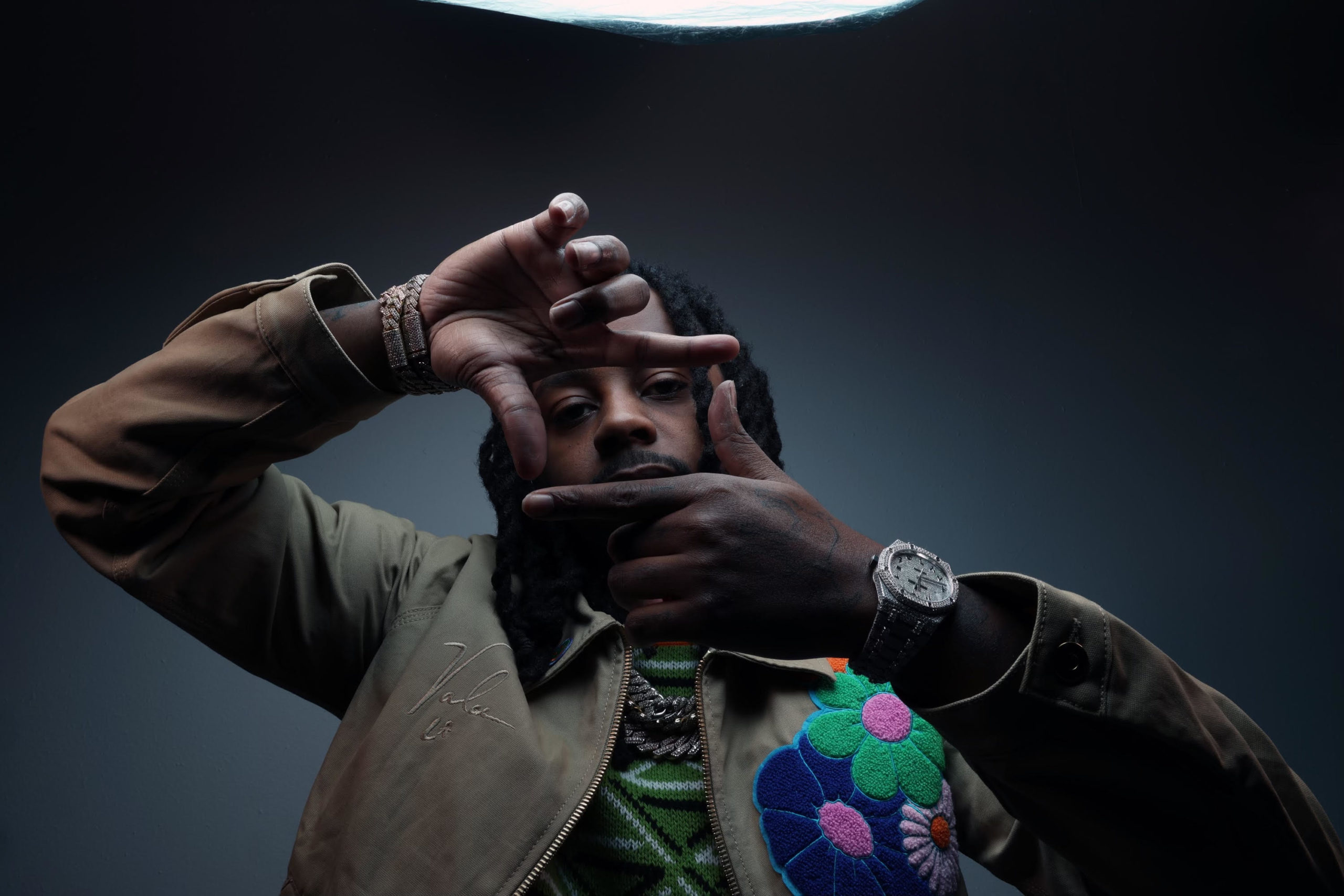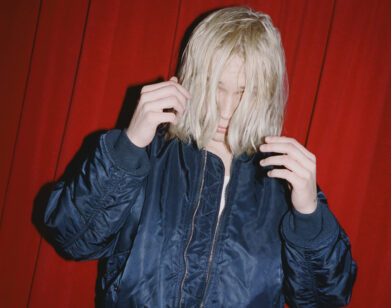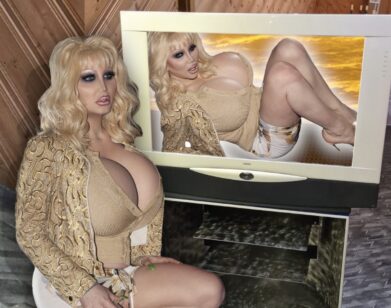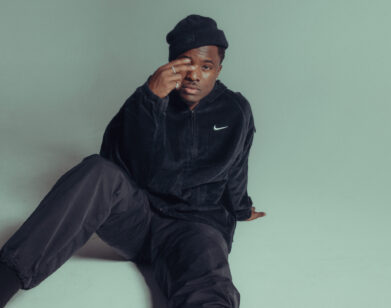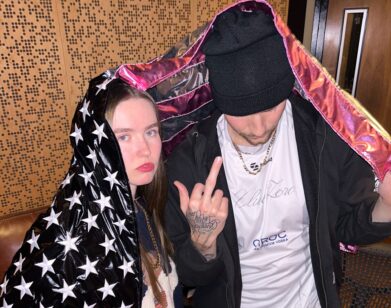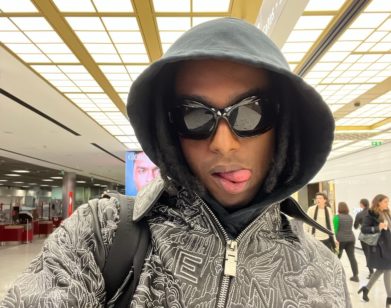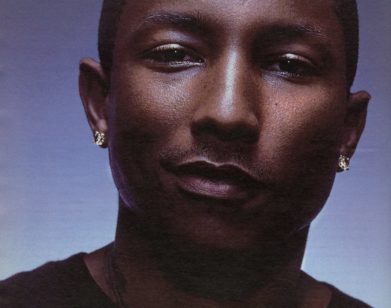NAMESAKE
“I Kept Hearing Your Name”: Babyface Ray Meets Babyface
Besides a shared moniker based on their youthful looks, Detroit rapper Babyface Ray and chart-topping R&B singer-songwriter-producer Babyface don’t have much in common. The former is a newly minted star, whose preternatural cool comes across in languid flows on songs like “6 Mile Show” and “Nice Guy,” while the latter is one of the architects of the last 40 years of soul music. Ray has ascended to become one of the faces (no pun intended) of a booming Detroit rap scene filled with idiosyncratic characters, side-splitting wordplay, and scores of colorful local lingo. When a regional hip-hop culture has a mainstream moment, only a handful of its artists end up becoming true pillars. Ray is humble and soft-spoken, but he may have the best shot of anyone in his city to do just that. A few weeks before releasing his second album of 2022, Mob, out tomorrow, Babyface Ray connected with Babyface to talk about longevity, the elusiveness of an “I made it” moment, and the closest he’s ever come to writing a love song.—GRANT RINDNER
———
BABYFACE: Where you at?
BABYFACE RAY: I just got to San Francisco right now. I was in L.A.
BABYFACE: Okay, cool. I’m in the Dominican Republic right now.
RAY: What you got going out there?
BABYFACE: I just came down here for a few days off. Excuse the terrible band behind me, outside music. I pulled you up on Spotify and have been listening to all your stuff. I really like it, man. I like your smoothness. It’s just got a vibe to it.
RAY: I appreciate that a lot. You’re a legend, so just hearing that, it’s great.
BABYFACE: I kept hearing your name. Everybody kept confusing me with Babyface Ray and so I’m called a rapper these days. I was just kind of wondering, how did you grow up in Detroit? Was music always a part of [your life] or was it something that you just went to?
RAY: I’d been attached to music since I was a kid. My dad had a sick music collection, where he played like, all the classic good music coming up. We had a stereo system in my house. I remember growing up as a kid, he used to play that every day. And in middle school, I started to try to be a rapper. And it just went from there.
BABYFACE: When I was growing up in music, it was really all about having music on the radio. It wasn’t really so much about trying to make it. I’m trying to figure out, was it different in your life? Was it like a way out?
RAY: No. It wasn’t a way out because at first, when you’re doing it, you’re just doing it. You just think you doing something. I didn’t think we was gonna get to this moment in life. I had both my parents in the house so I wasn’t struggling. I had a pretty good childhood. I just started doing music and it eventually worked out.
BABYFACE: So how realistic are the stories that you tell and things that you rap about?
RAY: Oh, they’re super realistic. The life that I preach about through my music, no, I didn’t have to go down that road. But I was intrigued, kinda, by the streets and the stuff that was going on, so I ran towards them instead of doing the right thing. And what I speak about is just what happened.
BABYFACE: Were there guys in your neighborhood that were putting tracks together? Did you mess around with doing the music itself or did you just do the rapping?
RAY: I started out doing it by myself and then the guys from the neighborhood, which was Peezy, he’s from Detroit, he does music as well. He came up to me. The older [guys], they kind of grabbed me up when I was younger and then we got involved with each other. It’s a couple of cats that are doing very well. Icewear Vezzo, M Dot [Taylor], he’s a musician from Detroit. We all came up together and collaborated. Before I was Babyface Ray, we was a collaborative group called Team Eastside Detroit, which had some kind of traction going.
BABYFACE: So everybody’s still in Detroit? Or did everybody move out to different places?
RAY: Everybody’s still in Detroit.
BABYFACE: That don’t usually happen. Same house, same neighborhood?
RAY: Me and Icewear Vezzo are literally from the same neighborhood. Peezy was like, right up the street. And then the rest of the guys I did music with were spotted around the east side of Detroit and we came together.
BABYFACE: What do you feel like you want out of all this? How far do you want to go?
RAY: I’ve been doing it for so long, and nothing was ever happening. I’ve been given an opportunity to do big things. Now, I’m just reaching for everything that’s allowed me to get and being the best me.
BABYFACE: I’ve been doing this for a long time, and things didn’t really start hitting for me ‘til I was about 35. Now [I’m] going on 64, so that’s a lot of years. But, you know, it takes that kind of time. And you gotta keep that effort in, keep believing that you’re giving something to somebody enjoying it. I can see why you should keep on pushing and not giving up. Because you do have this thing about you, your voice, it’s got a chill vibe. And I ain’t just bullshitting. So, I’m glad we could talk. With everything that just happened [Takeoff, of Migos, was killed in Houston a day earlier], what do you think is happening with hip-hop culture right now?
RAY: We’re in different times right now, you know what I’m saying? Due to social media platforms, and people feeling a lot of pride, everybody wants to beat it. It’s hard. It’s rough in some places. The hip-hop industry is a reflection of the rough stuff that’s going on. Sometimes, we speak about stuff we shouldn’t be talking about, but it’s realistic for us. You know what I’m saying?
BABYFACE: I guess, in reality, it goes on every day anyway. It’s just when somebody famous puts a light on it. But it doesn’t mean it doesn’t happen [otherwise]. In other words, it doesn’t make sense not to talk about it, because it’s real either way. It’s just a hurtful time right now. I’m sorry, I’m at a loss now.
RAY: I feel, in the music industry before, we didn’t really expect to know artists so well, you know what I’m saying? We just enjoyed these artists for music and music only. Now we’ve got these social media platforms, where you can get into these people’s lives, and they want to push the artists to see, “Are you what you talking about?”
BABYFACE: With that in mind, how open are you in terms of social media, with your life and everything?
RAY: Now that I’m in this position, I post what needs to be posted. I do what I need to do, because I don’t want to jeopardize the opportunity. It’s not about me. It’s about my kids, my mother, my father, my siblings. I’m in a position to change a lot around me. So I do what’s necessary. I try not to draw outside the lines. I’m handling business, man. I don’t really care about none of the other stuff y’all got going on.
BABYFACE: I hear you. What does that feel like when you hit the stage? What Michael Jackson used to say to me was how much he loves music and that was the reason why he did it, because he had such a love for music. He’d asked me that kind of question and I didn’t always know how to respond, because I don’t think I loved it as much as he did. Where does your love for music come from? You said your dad used to listen to records. I also heard that your dad was a pastor. Did part of the influence come from being in church?
RAY: Before I was even doing music, music was able to change my emotions. Like, if I listen to a song it’ll put me in this mode, or if I listen to a song it’ll put me in this mode. Like, I can have a bad day and listen to the right song and I’ll feel better. People who know me know I’m pretty private, shy. But when I’m on stage doing my music, that’s my time for me to let it pour out.
BABYFACE: So I put out a new album called Girls Night Out, which is a collaboration with girls like Ari Lennox, Kehlani, Ella Mai and Queen Naija. We wrote it all together. If you were putting a collab album together, who would you do that with?
RAY: I’m a fan of music. I always say, “Anybody that’s good at it, I’m looking forward to working with,” from artists to producers. I can’t really pinpoint one specific person.
BABYFACE: Tell me about Mob, your new album.
RAY: When I first came in, I had dropped a CD called Unfuckwitable and I recently dropped a CD called Face, so right now I’m just letting the people know what I’m going through and how I’m dealing with everything.
BABYFACE: How often do you work on music?
RAY: Pretty much every day. I’m one of them cats. When I’m not doing nothing, I feel like I need to do something, so I call my engineer to my house just to set up. Even if you just come over to play some beats, I could be just sitting there listening. There’s a lot of artists around me that do music that’s on the come up as well. I call those guys over and just sit there and let them rap if I’m not in a creative space right then. So I try to work at least every day.
BABYFACE: Do you ever decide to take time off because you feel like you don’t have any ideas at the moment?
RAY: Sometimes I run out of stuff because my music is so reality, I’d be having to go through stuff. I can be going through it with my child’s mother, or the family could be having issues, or something could be happening in the neighborhood. I gotta go through some stuff to be able to create.
BABYFACE: What’s the closest that you’ve written to a love song?
RAY: I got a few actually. I got a song called “Move to L.A.,” where I’m talking about a chick moving to L.A. and our relationship. I got a song called “#1 Fan” that talks about me and a girl who’s my number one fan. I got a song with Blxst and Nija. I got another record there. It’s kind of a love song, but it’s kind of not, when I talk about this chick not answering the phone and keep worrying about where she is at the moment.
BABYFACE: That’s a good title for a love song: “It’s kind of a love song, but it’s kind of not.”
RAY: How’s the writing process for you? Do you feel you’re a better writer or artist?
BABYFACE: I’m a writer first. I feel more comfortable with that. On the artist side, I just did it because it was something to support my writing. Other than that, I was fine to just write for everybody else and do it that way. I wasn’t trying to be a star. I was fine to just be in the band.
RAY: What’s your favorite song that you have written for somebody?
BABYFACE: I don’t really have one. I’ve written too many songs to really kinda figure that one out. Do you have a favorite of your stuff?
RAY: Nah.
BABYFACE: Yes, that’s what I thought. It don’t really work that way so much. Do you ever feel, when you’re in the studio and you’ve done something, “Okay, this is gonna be the one”?
RAY: I try to stay away from doing it because I don’t want to get let down, [if] it finally does come out and people don’t receive it. Sometimes, though, you know when you hear it.
BABYFACE: Yeah, I do the same. I never say this is it, I say this could be it. I always just cross the fingers. Sometimes I wonder what kind of writer I would be if I had grown up at a different time. If I had grown up in Detroit instead, what kind of things would I be talking about? That’s why I like to listen to everybody that’s got things out now, because I don’t want to just be stuck in a time. I like to constantly grow. I’m constantly listening. All the girls that I had in the studio, I had different producers in, too—I wasn’t trying to make ‘90s records or 2000s records. I was trying to make records that matter today, because people listen differently.
RAY: Who do you think you had the best chemistry with while working on Girls Night Out?
BABYFACE: To be honest, everybody was good. I was surprised. I didn’t know that they were gonna be as good as they were. Queen Naija. Coco Jones, this girl Tiana Major9, she came in killing it, then Muni Long and then Ari Lennox. I was happy with everybody. These girls today, they’re a lot different than they were before. They’re a lot more independent. They’ve got a lot more to say and aren’t scared to say it.
RAY: When you was coming up, and working with all those legends, did it feel different than working with regular artists? The Michael Jacksons, the Whitney Houstons….
BABYFACE: Yeah. By the time I got to them, they were already big stars. When we started off working with Bobby Brown and Johnny Gill, early days, they weren’t big stars yet. It was the stuff that we kind of did with them that helped make them stars. But by the time I got to Whitney, she was already huge. So I was a little nervous, going in there hoping that she respected what we were gonna do, because that’s the biggest thing when you’re working with people that are already there. They’re looking at you like, “I hope you know what you’re doing.” The biggest thing is walking in a place where people respect you already. Now, it’s a little bit easier to go in. But even though you have the respect, then you got problem with people getting nervous.
RAY: Yeah.
BABYFACE: They can’t be all the way chill, and that’s when they give their best. You calm them down and get right so you can get to a point to be creative and in a good space. That’s the biggest difference. I go at it with a more chill approach, but sometimes you gotta push harder.
RAY: When you do a record, do you sometimes revisit it?
BABYFACE: All the time.
RAY: [To] perfect [it]?
BABYFACE: I keep going back, again and again. And then I might leave it alone for a while and then check it and see if it still hits. You can be all excited about it and then go back the next day and that ain’t it. In most cases, you do it, and then you’re done, and that was almost the way with this project. The only thing I could do is fix it up after the fact because almost every record we did, we had one day to record and one day to write it. So it was all in one day. I didn’t really get a chance to go back and tweak it with the girls. I had to tweak everything production-wise on the outside. For me, I usually get to work a little bit more, but I was purposely just trying to make it a natural thing.
RAY: What moment in your career did you feel like, “Now I’m crossing over to a different [level]?”
BABYFACE: I don’t know. When big things were happening, I wasn’t paying attention to it because I was still working. When I got calls from artists that were huge at the time, when I get a call from Madonna or Fall Out Boy or Eric Clapton, people that were out of my genre, that was crazy. Even with somebody like Barbra Streisand, it’s still crazy to get those calls. But I was busy working, so I never took the time to sit there and celebrate it and think I was the shit.
RAY: I think I got that bad too, man. People always telling me to be grateful and celebrate what I got going on and I’d be like, “Man, we ain’t done now, let’s just keep pushing.”
BABYFACE: You’ll have time to celebrate later. It’s best to keep the work going, especially while you got it, because you can sit there and celebrate and lose it all. You gotta stay real to the process and what got you there in the first place. I’ve seen that happen too many times, where people get one hit and they celebrate the shit out of it and then you don’t hear nothing else from them. I think that was the first thing I said to Jermaine Dupri. This is right when we’re working with Whitney, he just finished the thing with Kris Kross and that “Jump” record. He said, “What advice do you have?” And I said, “Don’t act like that’s the one. Don’t start celebrating yet. We got more work to do.” He took that advice. When you’re in the zone and you can stand more, you just gotta keep on going. I got out of school and I was in a band at 18 years old. Things didn’t really start working for me ‘til I was about 35, when I started getting the first hit. That was a lot of years before that happened. And then it still took time, even from there, to really blow up. So it takes time to build. And to a certain extent, it’s good that you build slowly, because it sucks when you come out huge and then go down.
RAY: At any time in your career, did you feel overwhelmed with how things were going?
BABYFACE: Not so much overwhelmed, but the good thing about my career is that I’ve never been one of these artists that have been so huge that you can’t walk down the street. I get recognized and stuff, but everybody that I worked with was far bigger. If I work with Bruno Mars, he can’t go anywhere and just have a regular life, especially today, with social media. So for me, the overwhelming part has probably been with certain business things, how much you can do at one point, whether you should take a particular project on or work with a particular artist. Nothing is as overwhelming as what people really have to deal with today, with social media stuff, especially in hip-hop culture. Everything you do is watched so closely. You’ve got to be careful. And I don’t know if that’s going to change much, because social media’s not going to change. We can wish it all day long, but I don’t know if that’s going to happen soon enough. It was my pleasure [talking to you] and I want to come see one of your shows one day, get the whole feeling.
RAY: For sure. Whenever we get time, I just want to sit in the studio with you, man, and how we’re building right now, just be able to kick it. We ain’t even really gotta do no music. I just want to learn, man.
BABYFACE:: Oh, for sure. My door’s open anytime and all the time.

